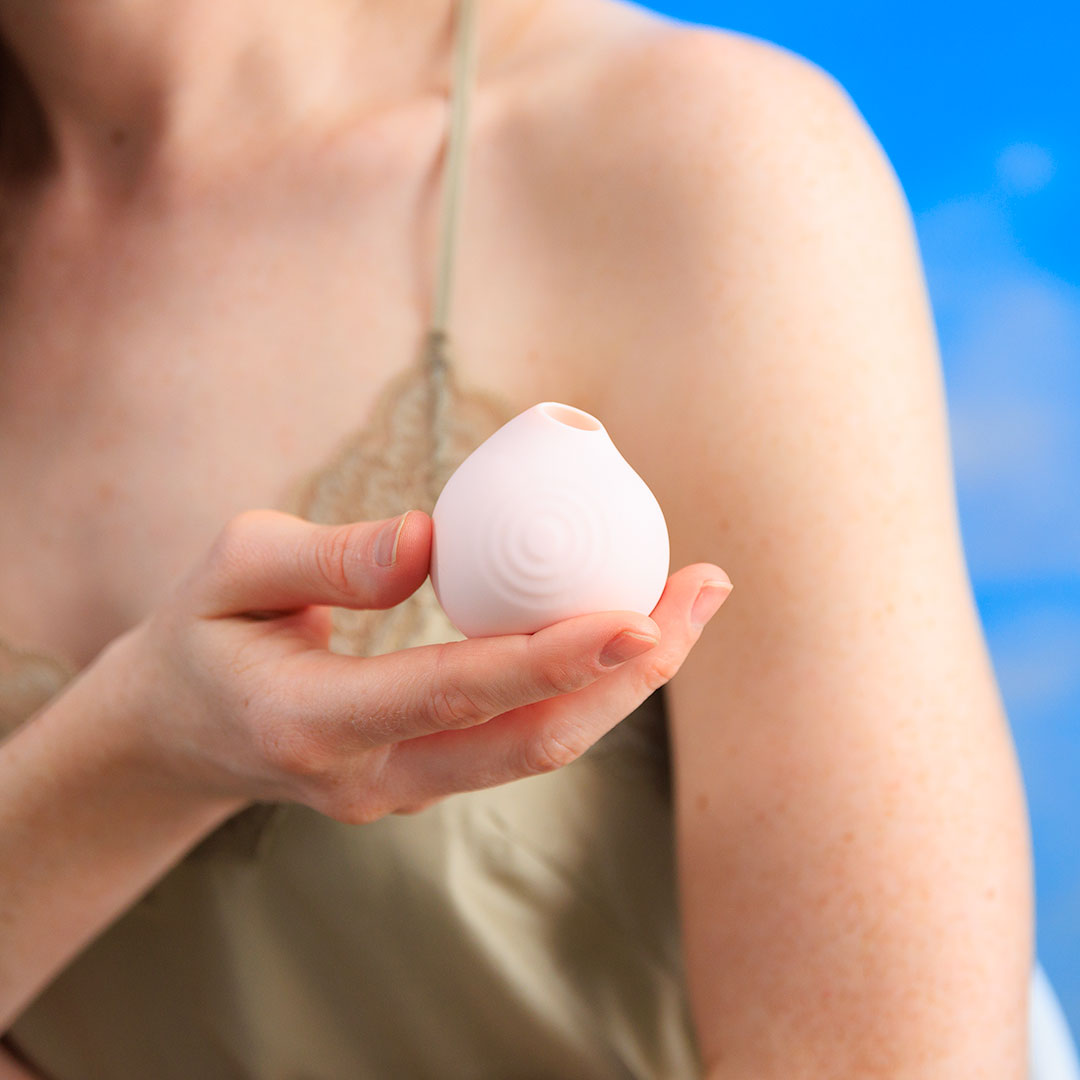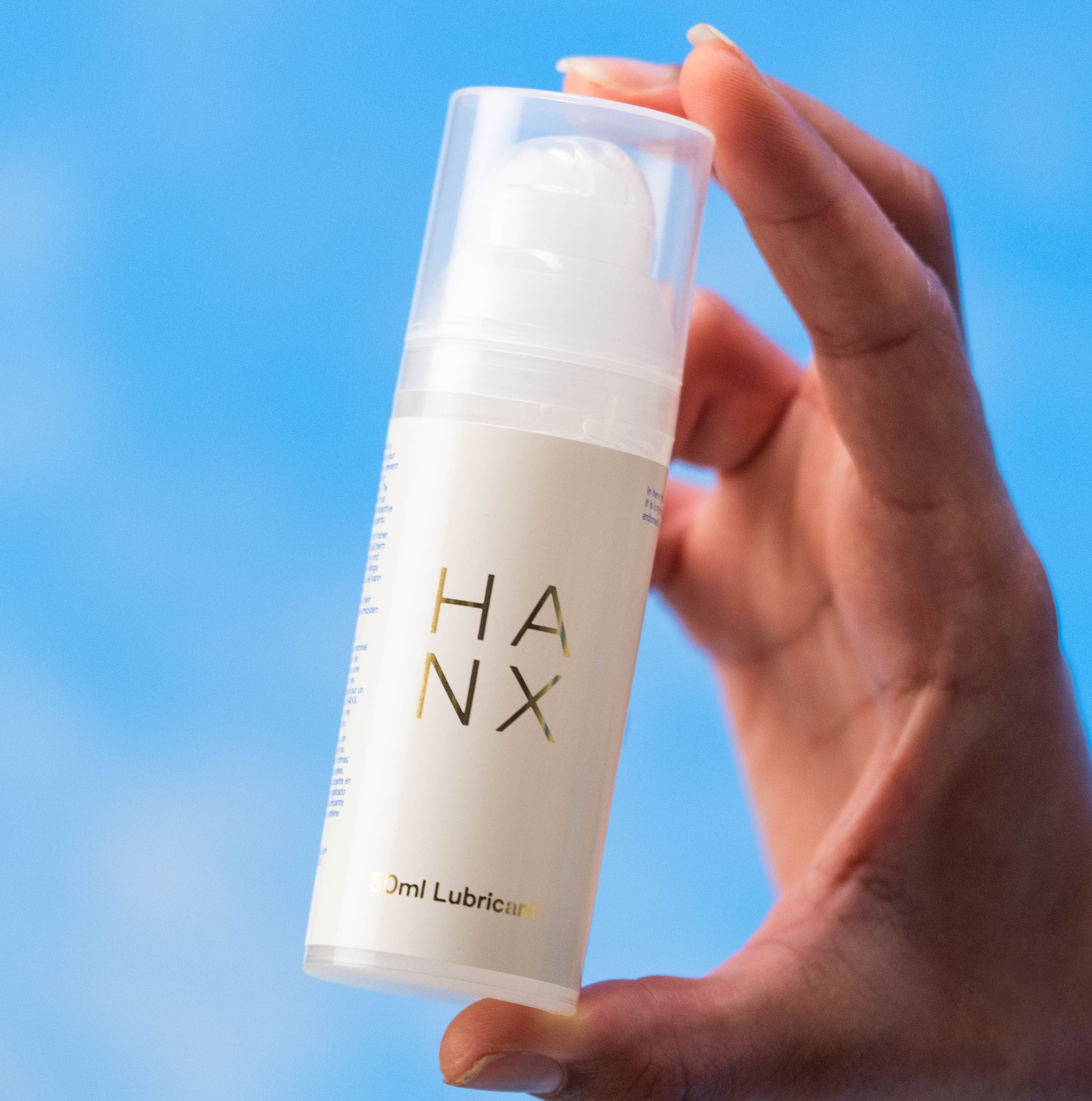Why Sex Might Feel Different After Menopause
Menopause can signify a big change, but that doesn’t mean that your sex life is over. Despite what Hollywood or hearsay might suggest, there’s no expiration date on your sexuality. You can experience pleasure post-‘the change’, whether that's alone or with a partner – it just might just look a little bit different. With the expert perspective of our gynaecology doctor Dr Sarah Welsh, Henn Mossery-Golan explores how menopausal hormonal changes might affect your libido and how to navigate sex.
Vaginal Dryness
Even if you haven’t experienced vaginal dryness before, it’s a common and perfectly natural change that can happen during menopause. Dryness might also result in painful sex or irritating itchiness. If this is the case for you, your GP can prescribe oestrogen treatment that you can insert directly into your vagina using a pessary, or in the form of a cream or vaginal ring (and it can safely be used alongside HRT!). The oestrogen cream will increase moisture in the lining of your vagina, and aid lubrication, which can help make penetrative sex more comfortable again.
Using a water-based lube which has been specifically formulated to help with menopause-related vaginal dryness is our secret weapon for sex. It can feel intimidating attempting penetrative sex, or masturbation, during or post-menopause, especially if you’ve been experiencing dryness or soreness. Double check the ingredients list to make sure your lube is free from harsh spermicides, sugary flavourings or tingling gels which can exacerbate dryness or even leave you with a yeast infection.
Take the pressure off yourself and switch focus to the clitoris. Whether you're using an external toy (like Cindy, our new mini clit sucker) or giving yourself a hand, it's perfectly okay to take penetration off the table.
Final top tip: wearing cotton underwear and only washing your vulva with water will also help to keep your vagina happy.
Sex drive in reverse
Everyone experiences menopause slightly differently. As your oestrogen levels, this can lower sexual desire and you might it trickier to experience or sustain sexual arousal. Hormonal changes might not be the only thing affecting your sex drive. Menopause can cause increased levels of anxiety or depression, which can also impact your libido. This combined with the emotional impact of menopause might mean you don’t feel as excited about sex as you have previously.
If you’re looking for natural ways to boost your libido, consider trying a natural supplement, such as HANX Libido Lift, or incorporate more of nature’s aphrodisiacs into your daily diet. As Dr Sarah always says: “eat the rainbow!” Fruits such as peaches and pomegranates, Omega-3 rich foods, and avocado are all associated with improving libido, especially in women, and leafy greens can help support blood flow and improve symptoms of vaginal dryness. Exercise can also have a really positive impact on not just your libido, but your mood, as the feel-good endorphins it produces help to reduce low mood and get your blood pumping.
Too hot to handle
Night sweats and hot flashes can also impact your sex life. There’s nothing worse than trying to get sexy when you’re running on low-to-no sleep, and it can really affect your ability to get in the mood, or make you feel self-conscious about your body. If you’re cohabiting or dating, you might find the increased body heat from sharing a bed with a partner can trigger your hot flashes - which might put you off initiating intimacy.
Remember that “sex” can be whatever you want it to be, and sharing pleasure with yourself and your partner/s doesn’t have to end just because your body is transitioning into a different stage of your life. Oral sex, showering together, and mutual masturbation are just some of the ways you can connect with each if penetrative sex is too painful, or uncomfortable. Take this time to speak openly with your partner about how you want to receive pleasure. Intimacy isn’t just a physical act of sex, and spending quality time having an uninterrupted coffee together, or going to the movies or even a back rub can all help you stay connected.
If you’re struggling with the symptoms of menopause, there’s help available and you don’t need push through it alone. Stigma around menopause can make it feel difficult to talk openly about the changes you’re experiencing with your partner, family, friends or colleagues.
Speak to your GP or healthcare provider about support available to help manage symptoms, consider therapy if you’re particularly struggling with the emotional changes, and start the conversation where you can. Encouraging an open dialogue with the people in your life is one of the biggest favours you can do yourself. This enables them to know how they can support you, and can make a real difference in helping you feel less alone.
Want more?
- What it’s like to experience early menopause?
- Find out which employers have a menopause policy to support their team.
- What impact does menopause have on your libido?






















